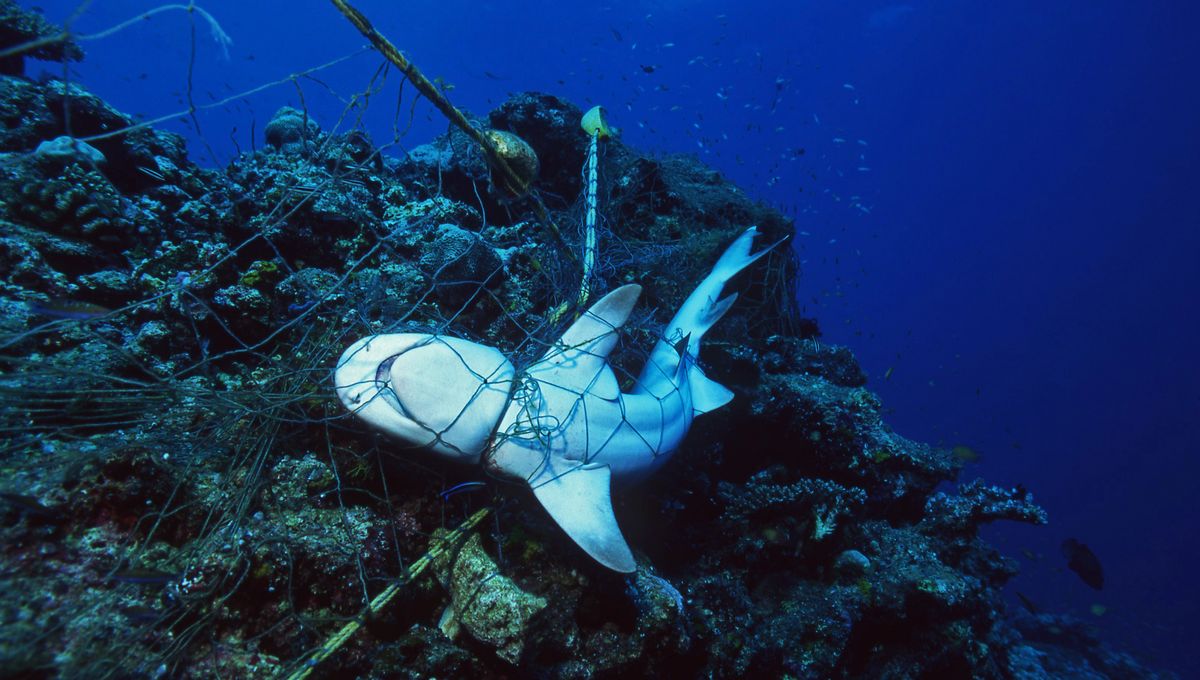
A new study of global shark fishing mortality has revealed the true extent of humanity’s negative impact on the oceans: around 80 million sharks die in fisheries each year, despite fishing regulations and bans on finning.
Between 2012 and 2019 – during which time there was a tenfold increase in finning legislation – global fishing mortality rose from 76 million sharks to more than 80 million in 2017, with an average of 79 million from 2017 to 2019. Improving the analysis could increase the number of shark deaths to 101 million in 2019, the researchers estimate.
Even worse, of those shark deaths, between 22 million and 28 million each year were in threatened species.
“Over the past two decades, sharks have been increasingly recognized among the world’s most threatened wildlife and hence have received heightened scientific and regulatory scrutiny,” the authors of the new study write.
They face threats from overfishing and large numbers are caught incidentally by pelagic tuna fisheries. There is also an increasing demand for their fins, which are a valuable commodity in Asian markets.
Protective regulations, mostly aiming to eliminate the practice of finning, have been introduced, alongside agreements to limit the trade of threatened species, efforts to address bycatch, and numerous public awareness campaigns. However, no studies have investigated the impact of these regulations on global shark fishing mortality.
Using fisheries data, computer modeling, and expert interviews, the team behind the new study have changed that. However, their findings were not as positive as you might hope: overall, fishing-induced mortality has increased in the past 10 years.
“By linking fishing mortality data to the global regulatory landscape, we show that widespread legislation designed to prevent shark finning did not reduce mortality,” they write, although regional bans did have some success, they add.
Shark deaths were particularly concentrated in coastal hotspots, with 50 percent of global mortality from 2017 to 2019 occurring in the territorial waters of just six coastal nations. Four of these – Indonesia, Brazil, Mauritania, and Mexico – also have “insufficient regulatory capacity” and are either major suppliers or consumers of shark meat.
“These findings suggest a shifting global landscape of shark fishing mortality that is moving away from finning of larger pelagic species toward full use of smaller coastal species, presenting new regulatory and conservation challenges,” the authors write as a potential explanation for their findings.
While serving as yet another reminder that we’re a bigger threat to them than they are to us, the study also hammers home just how desperately sharks need protecting.
Measures such as shark fishing bans, catch limits, and protecting key areas could all help to protect sharks, the authors told Live Science.
“It’s a solvable problem,” lead author Boris Worm added. “But it’s a problem that really needs to be tackled now, because sharks have not much time left.”
The study is published in the journal Science.
Source Link: Humans Now Kill 80 Million Sharks A Year From Fishing – Despite Regulations